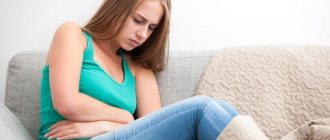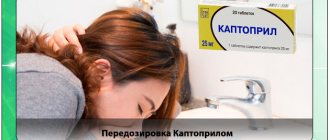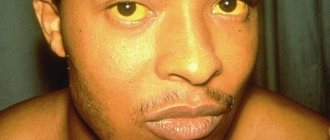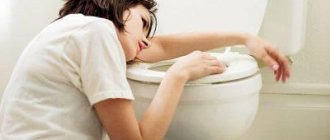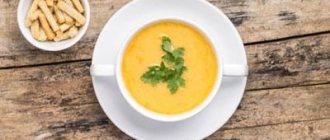Poisoning is a dysfunction of organs as a result of the entry into the body of poisons, bacteria and toxins of various origins. As a result, a feeling of discomfort, pain appears in the stomach, vomiting and nausea appear. Body reactions requiring treatment and medical supervision. Nausea during poisoning and after improvement of the patient’s condition has different causes.
What is this condition?
When a feeling of nausea occurs, the protective functions of the human body begin to turn on. The patient feels a deterioration in health, a disturbance in the general condition, weakness, and dizziness. This condition manifests itself after intoxication of the body. Poisoning can last for several days. During this time, poisonous substances and toxins are absorbed into the body. Nausea manifests itself as a defense mechanism that helps remove the harmful elements that caused the condition. Therefore, stopping nausea is strictly prohibited.
Nausea during intoxication occurs for the following reasons:
- Consumption of spoiled low-quality products;
- Inhalation of toxic fumes;
- Carbon monoxide poisoning;
- Ingestion of chemicals into the body;
- Overdose of medications;
- Alcohol poisoning;
- Consumption of narcotic drugs;
- Ingestion of pesticides;
In this case, the patient may feel:
- Dizziness;
- Suffocation;
- Shortness of breath;
- Difficulty breathing;
- Tachycardia;
- Pain in the abdomen;
- Temperature rises to 38°;
- Increase or decrease in blood pressure;
- Chills;
- Manifestation of cold sweat;
- Weakness;
- Drowsiness;
- Lack of appetite;
- Irritability;
The human body is a creation of centuries of evolution. It is designed very intelligently and has a large number of defensive reactions. One of them is nausea. The patient cannot control this condition. In case of food poisoning, the contents of the stomach are eliminated using the diaphragm and abdominal muscles. You can prevent the onset of vomiting with the help of a sweetish liquid or special antiemetic drugs.
If the patient feels dizzy, then it is necessary to take a horizontal position.
Possible complications
Intravenous rehydration
Organic intoxication requires urgent treatment. Adults quickly recover from dehydration, but in children and the elderly, or people with a history of cardiovascular disease, the condition can cause coma and even death. With prolonged vomiting and the inability to take liquid, patients require hospitalization. Restoration of water and electrolyte balance is carried out using intravenous infusions.
Profuse vomiting sometimes causes pieces of food to be thrown into the trachea and even into the bronchi. Rotting can provoke repeated intoxication.
If vomiting is a consequence of food infections that occur when listeria or E. coli enter the body, treatment with antibiotics is necessary to relieve the problems. Possible complications: renal failure, dysfunction of the peripheral nervous system and central nervous system. Most often, complications occur in people with reduced immunity, the elderly, preschool children and pregnant women.
When is it necessary to see a doctor?
Nausea is a sign that the body is experiencing serious problems at this moment and needs to be cleansed. Such patients need properly selected treatment. It is not recommended to consult a specialist if the attack of nausea was a one-time occurrence. This manifestation in most cases is caused by motion sickness, nervous breakdown, or overeating. Also, a feeling of nausea can occur with alcohol poisoning. Treatment in this case is not necessary.
But with increased intoxication, repeated repetition of gag reflexes, the formation of chronic diseases or the presence of diabetes mellitus, or if the patient experiences dizziness, contacting a doctor should be mandatory.
Emergency help is required if:
- Nausea accompanied by acute pain in the lower abdomen;
- Presence of blood;
- Manifestation of dehydration, dry mouth;
- Frequent urination;
- Deterioration in functional or mental activity;
- If the patient experiences dizziness;
- An ambulance must be called for children under three years of age and elderly patients over 65 years of age;
Possible consequences
Intoxication with such symptoms is treated on an outpatient basis. But if a number of signs are present, the patient must be hospitalized.
Signs of complications:
- Temperature 40 degrees;
- The victim has a fever, chills, and the body is covered in cold sweat;
- Internal pain in the abdominal area does not stop after taking an analgesic;
- Diarrhea does not stop for a long time, there is blood in the stool;
- When urination stopped due to drinking too much, dehydration began.
The listed signs may be present without poisoning. The cause of the illness will need to be determined in a hospital setting. After the tests are completed, treatment and subsequent recovery are prescribed.
Pre-medical measures
- If nausea is accompanied by fever, diarrhea, acute pain, or if the patient experiences dizziness, then it is urgent to call an ambulance.
- The person is placed in bed so that his head is turned to the side. A small pillow is placed under the head. You can place a wet towel on your forehead. Horizontal position on the back is not allowed. If someone is severely dehydrated, they may choke on vomit.
- It is not recommended to give food to a sick person.
- After an attack of nausea, you should rinse your mouth with running water.
- The patient can be given a glucose-saline solution as a drink. Such drugs are sold in pharmacies without a doctor's prescription.
- In case of hospitalization, it is necessary to collect things and prepare a medical pole.
How to treat a patient?
First of all, the patient should be soldered with special saline solutions. Regidron or its analogs are perfect. You can prepare the solution yourself. In the first day or two, if there is severe vomiting, you should not try to feed the patient. The solution should be taken a teaspoon after each urge or every 20-30 minutes. Soldering is the basis for treating rotavirus in the acute phase. If it is impossible to ensure sufficient fluid intake into the body at home, then special solutions are administered through the system (dropper).
Severe pain can be relieved with No-shpa. Smecta and Motilium will also ease the condition.
Important! You should not use Imodium or other medications for the disorder. Its principle of action is to relax the intestinal wall. If feces are not excreted, this can lead to the absorption of toxic substances into the blood, which will worsen the condition.
| What medications are needed for treatment | |
| Name | Action |
| Intestinal antiseptics:
|
| Bactisublin, Enterol, Biosporin | Biological products have an antibacterial effect. Accepted 7 days. |
| Bacteriophage | Viruses that infect bacterial cells, drugs based on them have been used relatively recently, usually containing a combination of several viruses aimed at certain types of bacteria. They have a targeted effect and do not harm the intestinal microflora. |
| Probiotics saturate the intestines with living beneficial bacteria, thereby helping the body return to normal faster. Taken from the first days of illness and another 1-2 weeks after recovery and withdrawal of all medications. |
| Creon or Mezim | Preparations that contain enzymes. Helps with digestion. Take up to 10 days. |
| Vitamins and immunomodulatory drugs | Prescribed during the recovery stage to strengthen the body and recover faster from illness. |
Techniques to prevent vomiting
The choice of method to stop vomiting depends on what exactly caused the body’s reaction. In most cases, stopping the gag reflex is not recommended. For example, after food poisoning, nausea is a natural way of cleansing. It helps the body remove harmful toxins that have entered it.
In case of alcohol poisoning, experts recommend gastric lavage. For this you can use:
- Purchased aqueous and saline solutions;
- Non-concentrated potassium permanganate;
- Cooled distilled water;
In order to relieve an attack of vomiting, it is recommended to use techniques that are effective in preventing dehydration.
Every fifteen minutes, consume a small amount of distilled water or infusions of medicinal herbs. Another method that helps get rid of vomiting after poisoning is the use of antiemetic drugs. Such medicines include:
- Bromopride;
- Vogalen;
- Dimenhydrinate;
- Dimetpramide;
- Dixafen;
- Dimetcarb;
- Domperidone;
- Meclozine;
- Metoclopramide;
- Rodavan;
- Thiethylperazine;
- Tropisetron;
Danger
Despite the fact that the absence of vomiting and diarrhea in most cases indicates that the poisoning is extremely mild, the danger of the absence of these signs is still present. The body, when faced with a toxin, usually tries by all means to get rid of the source of infection, which is why patients often exhibit these symptoms, which cause a lot of discomfort.
If there are no such signs during the course of the entire disease, this may indicate that the toxin continues to affect the body, and all organs that are temporarily unable to perform their functions suffer.
Usually, in such cases, the victim is recommended to induce vomiting on his own using a large volume of liquid and a solution of potassium permanganate - this way the toxin will come out much faster, and the patient’s condition will begin to gradually improve.
Treatment
Treatment for nausea includes several different techniques. In case of food or alcohol poisoning, gastric lavage can be used. This procedure helps get rid of excess pathogenic microorganisms and toxins. After intoxication, experienced specialists recommend taking sorbents. They are sold freely in pharmacies. You should follow a proper diet and a gentle regimen. It is necessary to drink as much fluid as possible. You can also use folk recipes. With the help of medicinal herbs you can get rid of intoxication in a few days.
After completing all the techniques, intoxication passes without any complications.
Why does nausea occur during (after) poisoning and how to get rid of it
Poisoning is a dysfunction of organs as a result of the entry into the body of poisons, bacteria and toxins of various origins. As a result, a feeling of discomfort, pain appears in the stomach, vomiting and nausea appear. Body reactions requiring treatment and medical supervision. Nausea during poisoning and after improvement of the patient’s condition has different causes.
Washing
Treatment of intoxication after food poisoning includes gastric lavage. Otherwise, pathogenic bacteria and toxic elements that penetrate the digestive tract spread throughout the body, being absorbed into the blood. They can cause side effects including respiratory arrest, cardiac arrest, and even death. Therefore, effective and necessary treatment after intoxication is gastric lavage.
To get rid of toxins, prepare several liters of solution. Depending on the severity of intoxication, 5 to 10 liters may be required. It is allowed to use chilled boiled water for the procedure. Soda is added to it. One tablespoon is enough for two liters of water.
It is also allowed to use a weakly concentrated solution of potassium permanganate.
- Rinsing must be done in a reclining or horizontal position. The patient lies on his side so that the head is below the level of the body. This position will not allow vomit to enter the respiratory tract;
- A container is placed on the floor to collect vomit;
- Skin protection measures are taken. To do this, you can wear rubber gloves or an apron;
- The initial amount of solution taken should not exceed 0.5 l;
- After taking the solution, the patient should bend over the container and press on the root of the tongue;
- The procedure should be carried out until the washing solution becomes clean;
Recovery period after intoxication
The duration of recovery depends on the severity of the disease, the volume of therapeutic measures, the age and concomitant medical history of the patient. For a healthy adult, 3–5 days are enough; with unstable immunity, the period can last 2–3 weeks.
To avoid relapse, you need to:
- strengthen sanitary and hygienic measures: wash your hands before eating and keep the utensils clean;
- do not consume products if the expiration date is expired;
- drink only boiled water;
- prohibit experimenting with unusual products;
- Place all chemicals and medications in a place separate from food.
You should not fight vomiting in the first hours after poisoning. Thanks to self-cleansing, the body tries to restore its condition on its own: if it is properly helped, serious complications will be avoided.
Sorbents
| Name | Description | Contraindications | Cost, rub |
| Activated carbon | It is used for food intoxication, diarrhea, dysentery, salmonellosis, and allergic diseases. | Contraindicated for ulcerative lesions of the gastrointestinal tract. | From 20 |
| Smecta | It is a natural sorbent. It is used for diarrhea, intoxication, nausea, heartburn, bloating and gas formation. | Not recommended for people with fructose intolerance. | From 149 |
| Sorbolong | The drug is prescribed to detoxify the body. Effective for kidney diseases. | Not recommended for patients with acute intestinal obstruction. | From 56 |
| Polysorb | Sold in powder form for suspension. Taken for acute and chronic intoxication. | The drug is contraindicated in patients with gastrointestinal bleeding. | From 107 |
| Chitosan | Able to stop bleeding, regulate the condition of lymphatic cells, and cleanse the intestines of toxins. | The drug is not recommended for children under 12 years of age. | From 860 |
Combined products
Medicines in this group are appropriate when the cause of nausea or vomiting is not established. They have several properties - antiemetic, anti-inflammatory, antibacterial. Sometimes a single use of such a drug is enough to completely eliminate nausea and vomiting.
But-spasm
Eliminates spastic pain, nausea and vomiting, relaxes smooth muscles, suppresses inflammatory processes in the stomach and intestines. They consist of paracetamol, NSAIDs and an anticholinergic agent. Prescribed for renal, intestinal, and stomach colic of moderate intensity, 1 tablet three times a day.
The drug is not used in pediatrics and is strictly prohibited during pregnancy. Contraindications also include internal bleeding, peptic ulcers, glaucoma, and chronic alcohol dependence.
Drinking and diet
In order to completely get rid of the symptoms of intoxication, you must follow a strict diet.
Food must be pureed. It is recommended to make a mushy puree.
For 3-4 days you should avoid spicy, fatty, too salty, smoked and fried foods.
Spices and sauces should be excluded from the diet.
Not recommended products:
- Canned food;
- Meat products;
- Sweets;
- Seafood;
- Yeast baked goods;
- Dairy products;
- Fibrous raw vegetables;
- Dried fruits;
- Green unripe apples;
- Legumes;
Recommended Products:
- Bananas;
- Buckwheat;
- Rice;
- 1% cottage cheese;
- Homemade yoghurts;
- Low-fat sea fish;
- Boiled chicken;
- Boiled pureed vegetables;
To get rid of intoxication in a few days, the patient needs to drink as much fluid as possible. Drinking plenty of fluids removes toxins from the body.
Consumption of liquids that cause fermentation and gas formation is not recommended. These drinks include:
- Beer;
- Sweet soda;
- Kvass;
If you are poisoned you can drink:
- Decoctions of medicinal herbs;
- Tea mushroom;
- Dried fruits compote;
- Morse made from fresh or frozen berries;
- Black and green tea;
- Distilled water;
Types of food poisoning
Poisoning is a pathological process in the human body, provoked by the introduction of toxic or poisonous substances into the body. In medical practice, there is a classification of intoxications - these are bacterial poisoning and non-infectious lesions of the body.
Microorganisms that cause digestive upset:
- bacteria of the genus Salmonella - infection occurs when eating raw eggs, poultry meat (especially waterfowl), and dairy products;
- coli infection is a rod-shaped microorganism that lives in the lower intestine of mammals. You can become infected through eating undercooked meat products, unboiled milk, poorly washed vegetables and fruits;
- botulinum toxin , which blocks nerve impulses - infection occurs when consuming canned foods that have undergone poor or insufficient heat treatment;
- listeria are gram-positive bacteria. A very dangerous microorganism that remains viable at very low temperatures. The bacterium can live in unboiled milk, chilled meat products, frozen seafood delicacies, and raw vegetables;
- shigellosis is the main causative agent of dysentery poisoning, which occurs through the consumption of unsterile water;
- Compylobacteriosis is an asporogenic, non-capsular, motile bacteria that lives in almost all types of food and, if improperly prepared, becomes a source of severe poisoning.
Poisoning with poisonous food:
- mushroom products containing toxins;
- vegetable and fruit crops treated with chemicals.
Traditional methods
- You can get rid of the feeling of nausea with ginger. It easily eliminates reflex urges. It can be added to food or drinks.
- Experts recommend drinking warm water with lemon juice for 3-4 days.
- An excellent folk remedy is dill seeds. One teaspoon of dry seeds is poured into 200 ml of boiling water. Simmer on fire for two minutes. Strain and take 3-4 tablespoons before meals.
- An effective remedy is an infusion of ripe red apples. Fresh fruits are cut into slices and poured with 300 ml of boiling water. Infuse for one hour. Add natural honey or granulated sugar to taste. Take the infusion every half hour for one day.
- Cabbage juice helps stop the gag reflex and relieve dizziness. It is squeezed from fresh cabbage. Take 0.5 cups twice a day.
For diarrhea
Poisoning is usually accompanied by loose stools. The following tablets will help eliminate the problem and restore intestinal health.
Imodium
The active substance of the drug - loperamide hydrochloride - acts on receptors, increases the tone of the intestinal muscles, reduces its peristalsis, relieving pain. The initial dose is 2 capsules, but not more than 8 per day.
Nifuroxazide
This is an antibacterial drug that is mistaken for an antibiotic. Its difference is that it does not destroy the intestinal microflora, but acts directly on pathogenic bacteria.
During the acute form of the disease, the recommended dose for an adult is 2 tablets 2 times a day, i.e. every 6 hours. Course duration is 5-7 days.
Dangerous manifestation of artificial vomiting
When the first symptoms appear, the patient must receive medical attention. But it is strictly prohibited to provoke unnatural vomiting if:
- The patient is unconscious;
- If a person suffers from diseases of the cardiovascular system;
- If a person has seizures;
Artificial vomiting should not be provoked in pregnant and lactating girls, children under four years of age, and elderly people over 65 years of age.
Nausea is not considered a disease. It indicates any malfunctions in the body, or the entry of poor-quality food into the stomach. Attacks of nausea are caused by irritation of receptors in the gastrointestinal tract, which can send a signal to the brain.
In case of severe intoxication, treatment should be carried out under the supervision of a professional specialist.
Causes of food poisoning
Signs of food poisoning in humans directly depend on the cause that provoked the pathological process:
- eating poorly washed raw vegetables and fruits;
- non-compliance with food preparation rules;
- low-quality meat products;
- using unfamiliar berries and mushrooms for food;
- drinking unboiled water;
- not fresh meat, eggs, dairy products;
- fruits and vegetables grown under artificial conditions or treated with poisons;
- improper storage of products.
Restoration of intestinal microflora
Food poisoning affects not only the stomach, but the entire digestive system. After detoxification and restoration of the gastrointestinal tract, it is necessary to take care of the intestinal system, which has suffered no less.
To do this, you should use several methods:
- balanced diet;
- drug therapy.
Pharmacological drugs
Products containing lactobacteria - probiotics:
- Farmalak capsules;
- Yogurt Roselle;
- Lactomune powder.
Preparations that do not contain beneficial cultures, but are a stimulator for their reproduction - prebiotics:
- Bioflorax syrup;
- Laksarin;
- Medulak.
